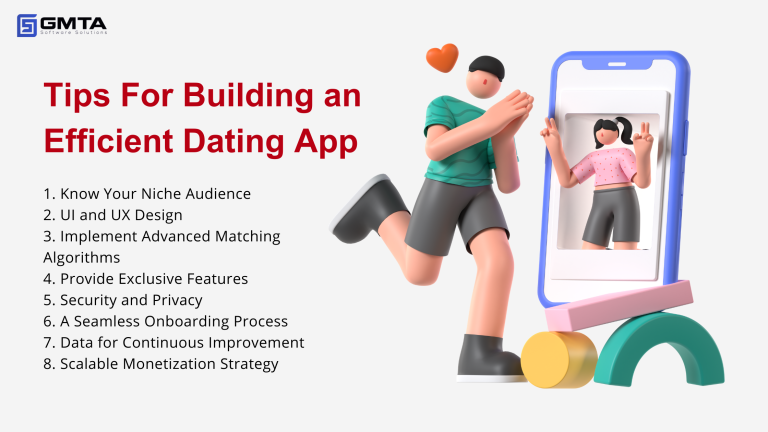How to Keep Your Dating Life Private Online sets the stage for an important discussion on the modern complexities of maintaining privacy in the digital dating landscape. In an age where personal information is readily shared and easily accessible, understanding how to navigate online dating while safeguarding your privacy is crucial. This exploration delves into the strategies, tools, and best practices that individuals can employ to keep their romantic endeavors discreet, ensuring a balance between connection and confidentiality.
With the proliferation of social media and dating apps, the risks associated with sharing personal details have escalated. By examining common pitfalls, the importance of privacy settings, and the potential consequences of oversharing, we equip readers with the knowledge to protect their dating lives without sacrificing genuine connections.

Artificial Intelligence (AI) has become an integral part of modern society, influencing various sectors including healthcare, finance, education, and transportation. The rapid advancements in AI technologies have led to transformative changes in the way businesses operate and individuals interact with machines. This article explores the multifaceted impacts of AI on society, examining both the benefits and challenges it presents.
The Evolution of Artificial Intelligence
AI, as a concept, has been around since the mid-20th century, with its roots tracing back to early computing theories and the development of algorithms. However, it was not until the 21st century that AI gained significant traction, largely due to improvements in hardware capabilities, the availability of vast amounts of data, and advancements in machine learning techniques. Today, AI encompasses various subfields such as natural language processing, computer vision, and robotics, each contributing to its growing influence.
Enhancements in Healthcare
One of the most significant impacts of AI is observed in the healthcare sector. AI technologies are being utilized for diagnostic purposes, treatment recommendations, and personalized medicine. Machine learning algorithms can analyze medical images, allowing for early detection of diseases such as cancer. A notable example is the use of AI in radiology, where algorithms outperform human radiologists in identifying abnormalities in imaging studies.
Moreover, AI-powered chatbots and virtual assistants are improving patient engagement by providing immediate responses to inquiries, scheduling appointments, and offering medication reminders. These innovations enhance the patient experience and streamline administrative tasks, allowing healthcare professionals to focus more on direct patient care.
Revolutionizing the Finance Sector
In the finance industry, AI is reshaping how institutions assess risk, detect fraud, and provide personalized financial services. Machine learning models are employed to analyze transaction patterns, enabling financial institutions to identify fraudulent activities with greater accuracy. By leveraging AI, banks can mitigate risks and enhance security measures, ultimately protecting consumers’ assets.
Additionally, robo-advisors powered by AI algorithms are democratizing investment management, allowing individuals to access financial advice and investment opportunities that were previously available only to wealthier clients. This shift towards automated financial services is transforming traditional banking practices, making financial planning more accessible.
Implications for Education
AI’s role in education is also growing, with technologies that personalize learning experiences for students. Adaptive learning platforms utilize AI algorithms to analyze students’ strengths and weaknesses, adjusting the curriculum accordingly. This individualized approach fosters improved learning outcomes and keeps students engaged.
Furthermore, AI can assist educators in administrative tasks, such as grading and assessment, freeing up time for more meaningful interactions with students. By implementing AI in educational contexts, institutions can enhance the learning experience and better prepare students for a technology-driven future.
Transportation and Autonomous Vehicles
The transportation sector is undergoing a radical transformation due to AI technologies. Autonomous vehicles, powered by AI, are being developed to reduce accidents, improve traffic flow, and enhance the overall efficiency of transportation systems. Companies like Tesla and Waymo are at the forefront, investing heavily in AI research to create self-driving cars that can navigate complex environments with minimal human intervention.
Moreover, AI is optimizing logistics and supply chain management by predicting demand patterns and streamlining operations. This capability ensures timely deliveries and reduces operational costs, which is crucial for businesses aiming to maintain competitive advantages in a fast-paced marketplace.
Ethical Considerations and Challenges
While the benefits of AI are significant, they are accompanied by ethical considerations and challenges. Issues such as data privacy, algorithmic bias, and job displacement are paramount discussions in the AI discourse. The collection and analysis of vast amounts of personal data raise concerns about privacy and consent. Ensuring that AI systems are transparent and fair is critical to fostering trust among users.
Algorithmic bias, which can arise from training data that reflects societal prejudices, poses risks of discrimination in decision-making processes. For instance, biased algorithms in hiring practices can lead to unfair treatment of certain demographic groups. Addressing these challenges requires collaboration among technologists, policymakers, and ethicists to create frameworks that promote responsible AI development.
The Future of Work: How To Keep Your Dating Life Private Online
The integration of AI into the workforce is reshaping job landscapes across industries. While AI automates routine tasks, it also creates opportunities for new roles that require advanced skills in technology and data analysis. Workers are encouraged to adapt by upskilling or reskilling to thrive in an AI-enhanced environment. Businesses must prioritize training programs to prepare employees for emerging roles that leverage AI technologies.
However, the transition may not be smooth for all. Certain jobs, particularly those involving repetitive tasks, may face higher risks of automation. Policymakers must consider strategies to support displaced workers, ensuring that the workforce is equipped to embrace the future of work in an AI-driven economy.
Conclusion
Artificial Intelligence is undeniably reshaping modern society, offering transformative benefits across various sectors. From improving healthcare outcomes to revolutionizing finance and education, AI’s potential is vast. However, it is crucial to navigate the associated ethical challenges and ensure that AI systems are developed and deployed responsibly. As we look to the future, fostering collaboration among stakeholders will be essential in harnessing the power of AI for the betterment of society while addressing its challenges head-on.











